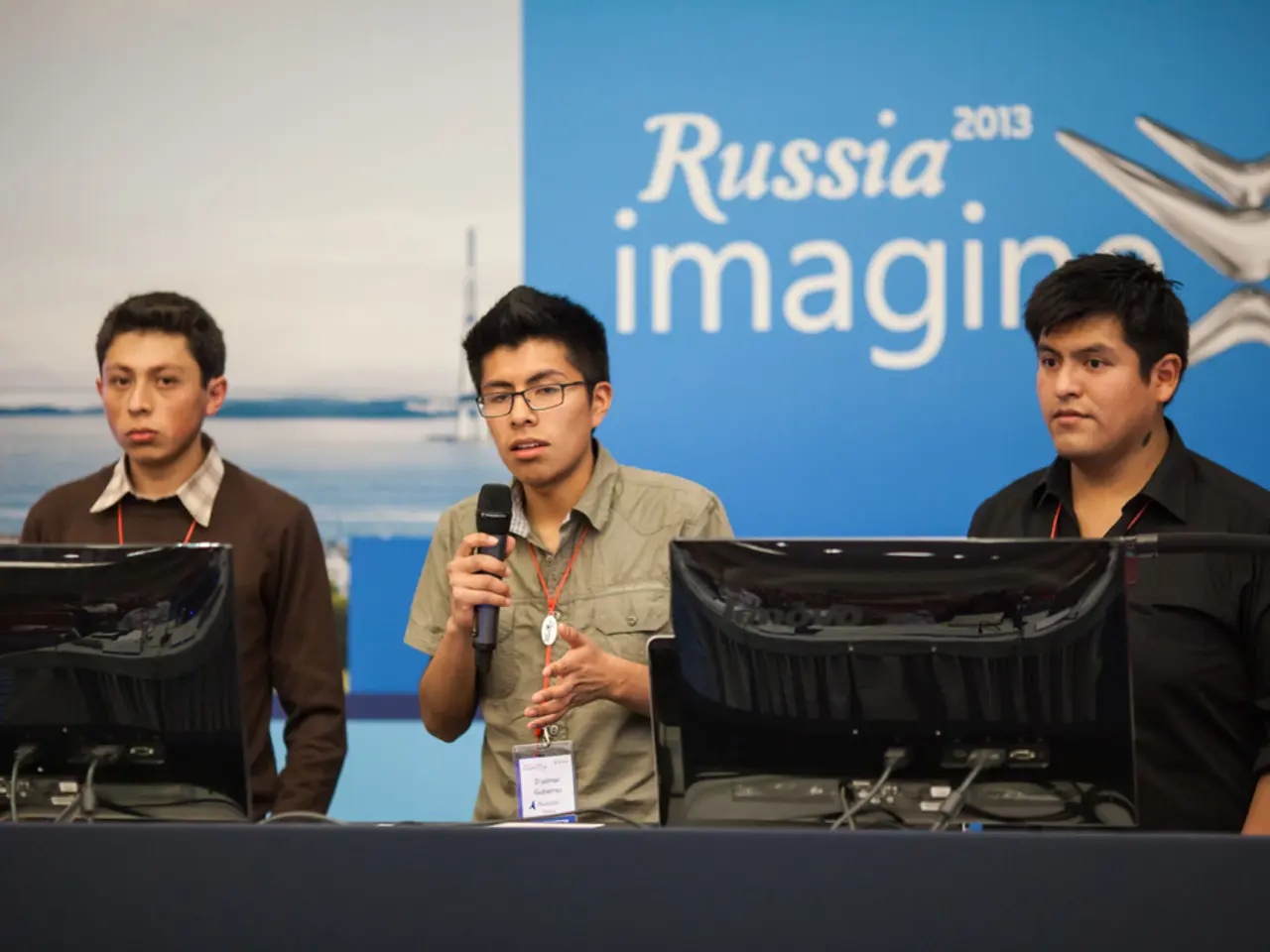Majority of residents in Nizhny Novgorod prefer human employment over robot positions.
In a recent survey conducted by SuperJob among residents of Nizhny Novgorod, opinions on the use of artificial intelligence (AI) in job interviews were found to vary significantly across demographics.
Some respondents are drawn to the novelty and intrigue of AI for job interviews, with 27% expressing a somewhat agreeable stance towards having an interview with AI instead of a human. However, only 6% are willing to fully entrust AI with conducting job interviews, and a total of 44% are completely against the practice.
The survey revealed that age and gender are key factors influencing attitudes towards AI-conducted job interviews. Younger adults (under 35) are more likely to consider it acceptable for AI to assist in job interviews, often seeing AI as a useful tool for increasing efficiency and reducing time and costs associated with traditional interviews. In contrast, older adults tend to be more skeptical or less engaged with AI for such purposes.
Men tend to be more optimistic about AI's potential in workplaces, including hiring practices, than women. Women report a stronger desire for more influence over new technology adoption, reflecting concerns about being represented adequately in AI design and use.
Race and representation also play a role in attitudes towards AI-conducted job interviews. White adults and men are generally seen as having their perspectives more represented in AI design, which can alienate other demographic groups and amplify concerns about AI bias in interviews and hiring.
Key reasons for support include AI's potential to increase efficiency and reduce costs, as well as the more frequent use of AI tools by younger workers, fostering greater comfort with AI integration at work, including recruitment.
However, concerns about bias and fairness, lack of employee influence and control, and unequal representation in AI development are key reasons for opposition or skepticism. These concerns reflect broader patterns of AI adoption and trust in workplace technologies.
Interestingly, individuals with a higher education tend to prefer AI to assist recruiters rather than replace them entirely, while the willingness of individuals with a higher education to interview with AI is lower than those with a vocational education.
In summary, the survey findings suggest that younger and male demographics tend to be more supportive of AI interviews due to greater familiarity and perceived benefits, whereas women and marginalized groups often oppose or remain cautious due to concerns about bias, lack of influence, and representation in AI systems. These attitudes reflect broader patterns of AI adoption and trust in workplace technologies.
Approximately 40% of the respondents are somewhat distrustful of AI and view it as a sign of employer disrespect. Others appreciate that AI can eliminate human bias in the recruitment process. Around 20% of the respondents are completely opposed to the use of AI in job interviews.
As AI continues to evolve and become increasingly integrated into various aspects of our lives, understanding and addressing the concerns and preferences of different demographic groups will be crucial for ensuring a successful and fair adoption of AI in job interviews and beyond.
Finances in the business sector could benefit from the increased efficiency and reduced costs associated with AI-conducted job interviews, as the technology is seen as a promising tool by many younger adults and men. However, the survey also emphasized concerns about bias, fairness, and lack of employee influence, especially among women and marginalized groups, which could impact the careers of individuals and create barriers to success in artificial-intelligence-driven workplaces. As technology advances, it's crucial for businesses to consider these perspectives when adopting AI to ensure a positive impact on their workforce and maintain fair recruitment practices.




